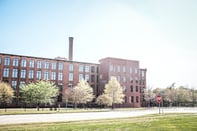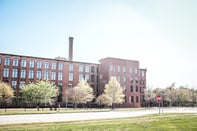Published on
Future-Proofing Your Institution

As the pandemic has shaken up the traditional way of doing things and shift to the digital environment, institutions are looking to establish stronger processes that will future-proof them from any other events like this. Not only is the academic infrastructure important but also how students and faculty are supported through these challenging times. In this interview, Cynthia Matson discusses the challenges higher ed is still facing, the impact they have on students and how institutions can begin future-proofing themselves to provide a more hopeful future.
The EvoLLLution (Evo): What are the most pressing challenges facing higher education institutions today?
Cynthia Matson (CM): Some of the most pressing challenges for universities, and especially Hispanic Serving Institutions (HSIs) like ours is the digital divide as we navigate the necessary virtual environment in student support and academics moving forward. For A&M–San Antonio, the increased dependence on remote operations caused by the pandemic has shown us that the digital divide is not only a dynamic construct; it’s a complex and evolving sociotechnical phenomenon. Affordability is another issue facing students making their way out of the job losses, food and shelter insecurities, family caregiving and grief the pandemic caused.
Prioritizing school over other home responsibilities when faced with choices about where to place their money is no easy task, and students need resources to be available and easily accessible to feel that earning a degree is still possible. Other issues include keeping students, faculty and staff safe and healthy on campus, and communicating protocols that keep them confident in the environment created by administration. And finally, inclusion, diversity and equity may be one of the biggest and most important contributors in cultivating well equipped, diverse and positive members of society. In the hyper social inequity-aware environment in which we are living, students, faculty and staff need to have their voices heard and diversity respected.
We as institutions have an obligation to encourage dialogue on systemic racism and social justice. Along with creating a safe space for students to freely express their identities and to share their concerns and voices in a supportive environment. That involves simultaneously, creating brave spaces that encourage individuals to contextualize information from different perspectives while meeting people where they are.
Evo: What impact do these challenges have on student retention and experience?
CM: As a Hispanic Serving Institution with a majority population of first-generation students, we must co-create substitute experiences that embrace the entire family in the process of earning a college degree. We realize that students in communities of color often have many complex familial responsibilities competing with their desire to continue pursuing their academic degrees, including working and caregiving. Student parents are co-mingling homeschooling with their own academic learning, and it’s exhausting.
Many campus traditions are reimagined and delivered in a trustworthy manner, focused on creating an inclusive, healthy and safe environment. We have expanded holistic support to understand and address issues our students from communities of color face, such as food, housing and transportation insecurities. We have conducted open conversations focused on achieving solutions that might address mental health challenges, grief, emotional fatigue and learning in the digital environment. Our institution has changed its support efforts because our students needed more and sometimes different supports to address the new truths unveiled by the pandemic. These new responsibilities, stressors and financial obligations are very disruptive realities for our students, as are academic readiness and the stress of high-level collegiate work. First-generation students tend to find the lexicon of navigating college without in-person guidance or mentorship a challenge, particularly remotely. Colleges can be intimidating, and with limited accessibility it’s a challenge to understand where to start, especially for those too shy or embarrassed to ask for help.
Our Welcome Center helps students begin this journey. Our team creates clear communication of opportunities and access to financial aid, scholarships, technological and learning resources and university activities. Communication is the lifeline to keep students connected to their university. Creating an institutional environment where students feel like they belong affirms that college is momentous and life-changing for themselves and their families.
Evo: What kinds of infrastructural improvements can help higher ed institutions become more future-proof?
CM: We are working within a City of San Antonio master planning initiative to create SA Tomorrow, the next 1M residents—as a means to fund infrastructure and roadways. This past February, we survived a crippling winter storm, which shut down the city’s electrical and water supply for thousands of households. While our campus was also impacted, it was not to the degree most families and businesses endured.
We were able to provide safe shelter for our students living on campus and recently partnered with the city to serve as a water distribution site. We have distributed PPE along with on-campus COVID testing available to students, faculty and staff, as well as public health safety assistants who do daily screening and temperature tests. A testing facility on site was crucial to early detection and reduced the transmission of the virus. In March, 1B eligible faculty and staff members were vaccinated. Creating and stress-testing communication channels are essential to being prepared for the future.
We created the Community.Safety.Together campaign–a comprehensive communication strategy to provide up-to-date, consistent information and resources for our entire university community. Using environmental branding, information was disseminated on our website, via email and through a dedicated mobile app. We transitioned in-person courses to the virtual space within two weeks and will likely keep a large portion of the technology and formats we used for the foreseeable future. Creating spaces equipped with WiFi and additional loaner laptops, additional faculty lines to extend class availability as well as hybrid courses are all part of the types of additions that will help provide a broader landscape for education in any type of challenging environment we may face.
Evo: What advice would you share with other leaders looking to future-proof their own institutions?
CM: Use every tool to repeat the messages. You will never over-communicate. Recognize that people receive information differently, depending on where they are in the institution. Go to great lengths to dispel rumors and misinformation. Share what you know when you know it. Keep your university community in the loop, and make yourself an available and willing listener to all audiences. It’s within these conversations and open forums that we offer empathetic clarity, comfort, and ingenious solutions.
As I wrote in a recent article about the “new F-word” on the importance of flexibility. Remember to be flexible. Everyone is at a high-octane level, continuously and rapidly changing. Be empathetic to the needs of your students, faculty, staff and community. Recognize that there is an unmet need in every situation, and be willing to think outside the box to develop solutions and seek new resources. Follow the science. Adhere to health protocols that keep your campus community safe.
Plan for the unexpected. Invest in long-term solutions and programs and cultivate relationships that can support your campus in times of need. There are a lot of community partners waiting to be a part of your institution. Engage with your students at every opportunity you have in person, virtually or through social media. Find new ways to get to know them and their aspirations.
Our students are looking for leadership that is motivational, relatable, authentic, responsible, responsive and resourceful. We cannot know everything they are going through and probably cannot solve all of their problems, but we can certainly be present and instrumental in this stressful time. Remember, the purpose of your campus is also to be the beacon of trust, reliability and confidence for your community.
This interview was edited for length and clarity.
Disclaimer: Embedded links in articles don’t represent author endorsement, but aim to provide readers with additional context and service.
Author Perspective: Administrator



